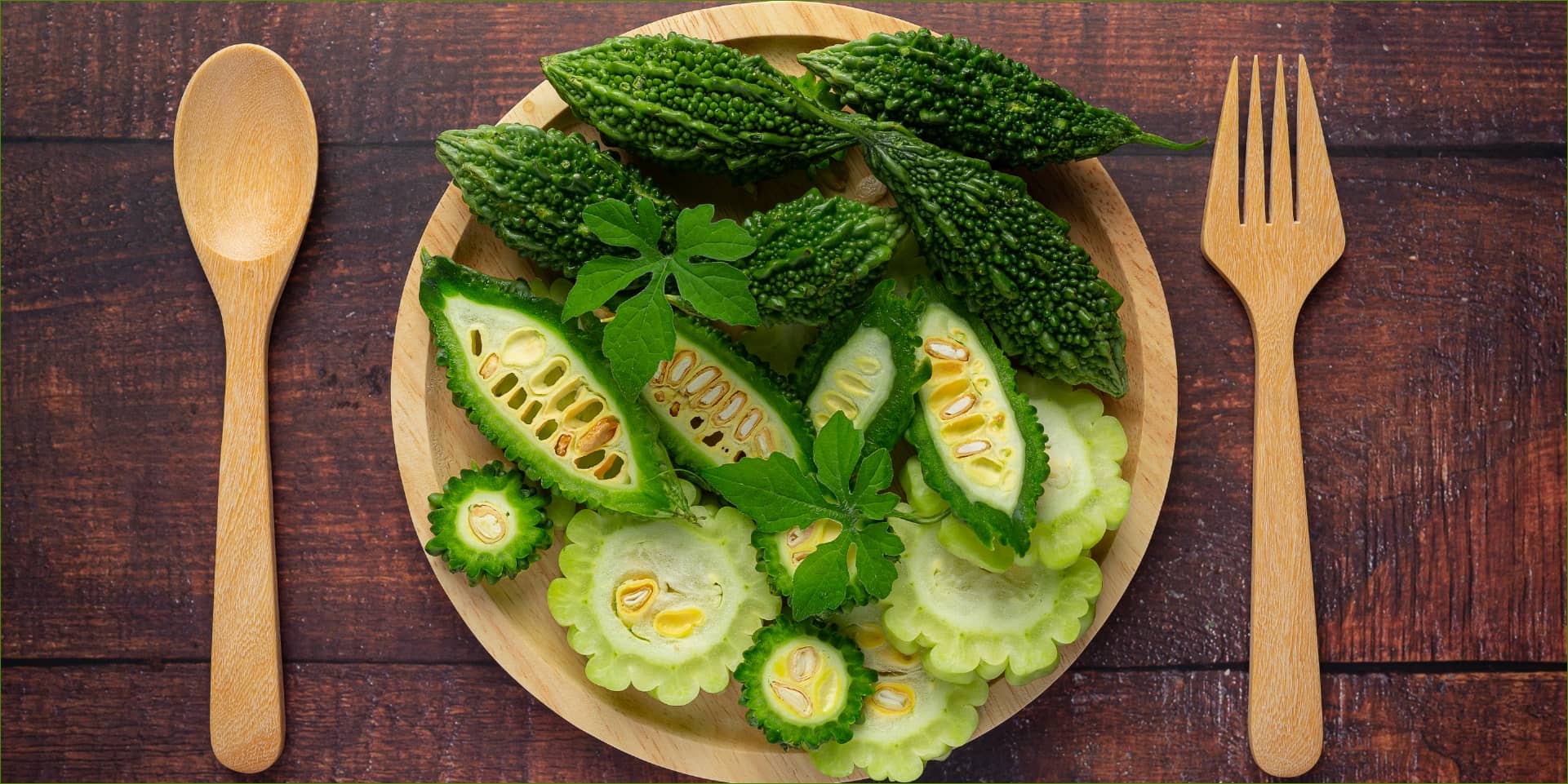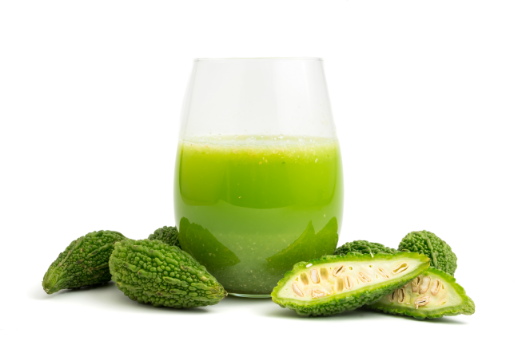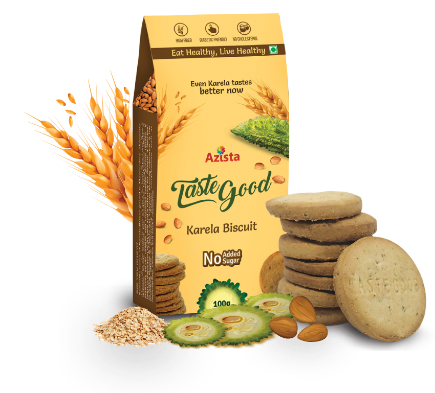
The Wonder Vegetable: Benefits of Adding Karela to Your Daily Diet
Karela, bitter gourd, or Momordica charantia is a commonly found vegetable in many Indian and South-East Asian kitchens. It is believed to have originated in Africa in prehistoric times but it was fully domesticated in South-East Asia where it is used as a kitchen staple even today.
Karela has been extensively used in Ayurveda and ancient Chinese medicinal systems for its many medicinal and therapeutic uses. These traditional systems of medicine operate on the principle that food can be a source of medicine. A lot of modern scientific research is being done on the role of food as not just a source of chemical energy, but also a source of therapeutic medicine for reducing the risk of chronic lifestyle diseases.
The bitter gourd is a tropical and subtropical vining summer plant. The plant is a herbaceous creeper that bears tendrils and can grow up to 16 feet in length. It can be grown in pots or directly in the soil. It is a common kitchen garden crop in Asia. The leaves of the Karela plant are huge and the plant bears yellow flowers, and the fruit is oval-shaped and tapered towards the ends. The skin of the fruit has a unique bumpy appearance.
Nutritional Benefits of Karela
The nutritional value of Karela is remarkable. 100 g of Karela contains 34 calories with 7 g carbohydrate, 13 mg sodium and 602 g potassium, and 3.6 g of protein. Karela is an excellent source of dietary fiber, Vitamins B and C, calcium, potassium, folic acid, magnesium, zinc, phosphorus, iron, and beta-carotene. Karela also contains phenols, flavonoids, isoflavones, and glucosinolates. Together these nutrients make it a precious source of medicinal and therapeutic benefits.

Health Benefits of Karela
Karela possesses hypoglycemic, hypolipidemic, anti-inflammatory, and antioxidant properties. These properties make it a powerhouse of medicinal and therapeutic uses to treat everything from common everyday ailments to chronic lifestyle diseases. Let us look at the health benefits of adding Karela to your diet:
1. Lowers Blood Sugar Levels
Karela contains an active agent called p-insulin, or plant insulin. It works just like human insulin. It lowers the body’s glycemic levels and protects the pancreatic islet cells. Another bioactive compound called Charantin present in Karela promotes the release of insulin and helps in stimulating glucose utilization by muscles. It also suppresses key gluconeogenic enzymes. Karela helps in reducing the glycemic levels in blood in both, Type I and Type II patients significantly when consumed regularly.
2. Purifies Blood
Karela’s antimicrobial and antioxidant properties treat blood disorders and skin problems, removes toxins from the blood, and purifies it. It is also helpful in improving blood circulation and curing skin issues such as acne, rashes, psoriasis, and boils.
3. Lowers Cholesterol
Due to its hypolipidemic and anti-inflammatory properties, Karela brings down the levels of LDL or bad cholesterol in the body, which leads to a reduced risk of heart disease and stroke.
4. Regulates Blood Pressure
Karela contains generous amounts of potassium which helps in lowering high blood pressure levels by absorbing the excess sodium.
5. Cleanses the Liver
Karela stimulates the secretion of bile acids and strengthens the antioxidant activity of other enzymes in the liver. This cleanses the liver and flushes out all toxins. It also helps in healing ulcers, improves bowel health, and the functioning of the urinary bladder.

6. Improves Skin and Hair Health
Karela treats dandruff, removes excess oils, and prevents greying of hair. Due to the presence of antioxidants, Vitamin A, and Vitamin C, Karela has proven to be very effective in improving skin and hair texture.
7. Cures Hangovers
Being emetic in nature, Karela can be the perfect cure for a hangover. It is very good at cleansing all toxins out of the liver.
8. Improves Immunity
Being a rich source of Vitamin C and antioxidants, Karela is crucial in fighting viruses and bacterial infections and boosting overall immunity.

9. Improves Vision
Because of the presence of Vitamin A and Beta-Carotene, Karela is highly beneficial in improving eyesight and treating eye-related issues like macular degeneration.
10. Helps in Weight Loss
Karela helps in weight loss by secreting bile acids that metabolize fat in the body. The content of carbohydrates and fats is very low in Karela. Also, it tends to keep you feeling full for a longer time. According to a study, Karela helps in dislocating current fat cells and prevents new fat cells from forming.
11. Excellent for Mental Health
Being a powerhouse of restorative antioxidants, flavonoids, tannins, and other nutrients, Karela is good for maintaining sound mental health. It enhances cognitive capabilities, uplifts your energy, reduces mood swings, combats stress, reduces anxiety, and alleviates depression while enriching your brain function.

TasteGood Karela Biscuits
The easiest way to include Karela in your diet every day is TasteGood Karela biscuits. The recipe for TasteGood Biscuits has been developed after careful research over the years on how to retain the integrity and goodness of Karela. TasteGood Karela biscuits are a testimony to what happens when you bring together ancient systems of medicine and modern food technology.
Every TasteGood biscuit contains the goodness and nutritional value of 20 g karela. If you are worried about Karela’s bitter flavor, don’t be. The bitterness is modified and formulated in such a way that the cookies are palatable to the taste buds of all people, and not just Kaela connoisseurs.

TasteGood Karela biscuits can be included in your routine as a daily source of Karela. They are the perfect mid-meal snack when you are hungry but do not want to send your daily calorie count haywire. According to a 2020 study published in the Indian Journal of Nutrition, TasteGood Karela biscuits have a medium glycemic index and have a hypoglycemic effect on diabetes patients. This means that it is useful in reducing your blood sugar when taken in addition to conventional insulin-based or Oral Antidiabetic Drug-based treatment.
TasteGood Karela biscuits are a baked delight. They are a super-smart and healthy snacking choice for both diabetic and non-diabetic patients who simply want to add the nutritional goodness of Karela into their lives.

